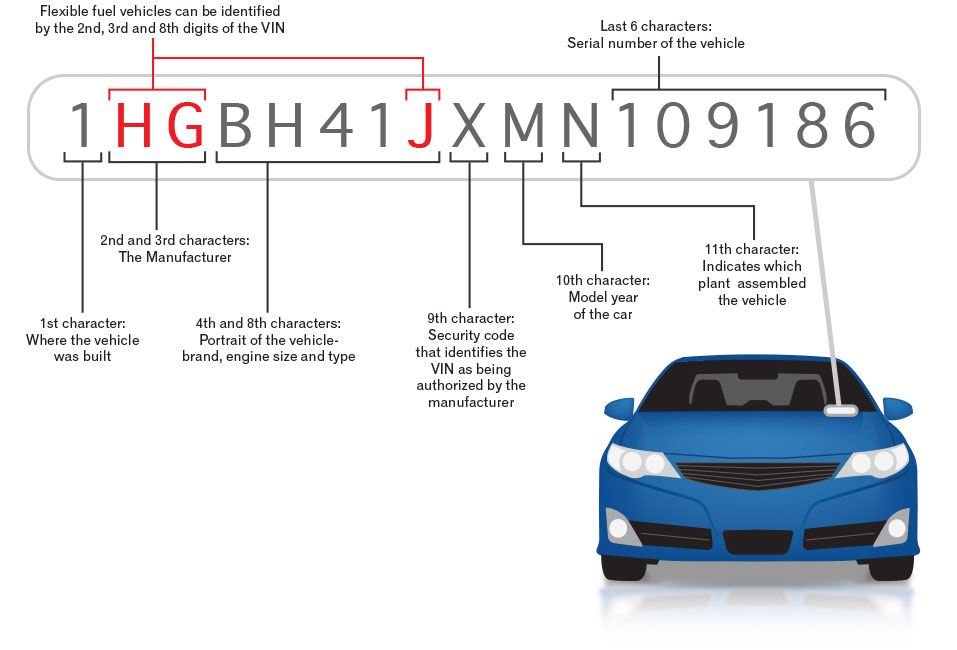If you are contemplating buying a used car or need to collect details about your present automobile, it’s important to search for the Vehicle Identification Number (VIN). The VIN is a novel code assigned to every vehicle, acting as its fingerprint. By decoding this code, you can unveil crucial particulars in regards to the automobile’s historical past and specifications. In this article, we offer every little thing you want to know about how to look up VIN and why it issues.
What is a VIN?
VIN stands for Vehicle Identification Number. It is a 17-character code composed of numbers and capital letters that uniquely identifies a particular automobile. Each section of the VIN offers priceless details about the car, including its producer, model year, country of origin, engine measurement, and extra.
How to Look Up VIN?
There are various ways to look up a VIN:
- Vehicle History Report: Websites like Carfax and AutoCheck provide comprehensive automobile history stories primarily based on the VIN. These reports provide information about previous accidents, upkeep data, title transfers, and extra.
- Manufacturer’s Website: Some car producers provide VIN lookup instruments on their official websites. You can enter the VIN to entry detailed information about the vehicle’s unique specifications and features.
- Online VIN Decoder: Numerous third-party web sites supply free VIN decoding services. By entering the VIN, you’ll be able to rapidly get information about the car’s make, mannequin, engine sort, transmission, and different related details.
- Local DMV: You also can contact your native Department of Motor Vehicles (DMV) to request information about a automobile utilizing its VIN. However, this methodology could vary depending in your location and the laws in place.
Why Look Up VIN?
Looking up a vehicle’s VIN can give you a quantity of advantages:
- Vehicle History: By examining the VIN via a car history report, you can achieve insight into the automobile’s past, together with any accidents, flood injury, or salvage titles which will impact its worth and safety.
- Authenticity: Checking the VIN helps be sure that the vehicle’s documentation VIN lookup matches its actual specs, defending you from potential fraud or misrepresentation.
- Recalls: Some VIN lookup companies also inform you about any open recalls related to the automobile. This information can help you handle probably dangerous issues and ensure your safety.
- Market Value: Understanding a vehicle’s history can affect its market value. By analyzing the VIN, you also can make informed decisions when buying or selling a used automotive.
Frequently Asked Questions (FAQs)
- Can I lookup VIN for free?
Yes, many on-line platforms supply free VIN decoding companies. Vehicle historical past reviews are often out there for a payment, however they supply more comprehensive details about the car’s background.
- How lengthy is a VIN?
A VIN sometimes consists of 17 characters, excluding the letters I, O, and Q, to keep away from confusion with numbers.
- Where can I discover the VIN?
The VIN may be found in several locations on the automobile, including the driver-side door jamb, dashboard, engine block, and insurance/registration documents.
- Can the VIN be altered or tampered with?
While it’s technically potential, altering a VIN is unlawful and punishable by regulation as a end result of potential for fraud. Always be sure that the VIN on the automobile matches the documentation.
Conclusion
Looking up a VIN is an important step in understanding a car’s historical past, authenticity, and market value. Whether you are purchasing a used car or just curious about your individual vehicle, using VIN lookup instruments empowers you with useful data. Remember to make use of dependable sources such as official manufacturer websites, reputable third-party VIN decoding providers, and trusted vehicle historical past report providers. By investing time in researching the VIN, you make knowledgeable selections that may save you from potential pitfalls on the planet of vehicles.


